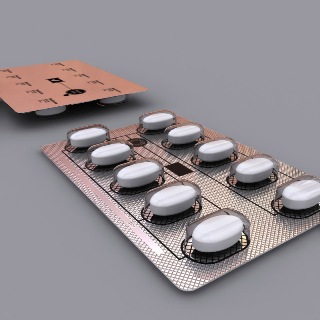Oct 31 2015
The Centre for Process Innovation (CPI) is part of a UK based consortium developing technologies that will spearhead the commercialisation of intelligent pharmaceutical packaging.
 Intelligent pharma packaging
Intelligent pharma packaging
The project titled ‘REMEDIES’, launched in 2014 and due for completion March 2018, is headed by GlaxoSmithKline with research led by the University of Cambridge’s Institute for Manufacturing. It brings together key players in the pharmaceutical supply chain to bring new emerging technologies to market which have the potential to improve medicine manufacturing and supply and offer more personalised, faster and cheaper drug delivery.
The UK’s pharmaceutical sector makes a major contribution to the UK economy but there remain significant market challenges to address current supply chain inefficiencies which add costs and reduce productivity. The REMEDIES project seeks to redefine the supply chain of the future, provide innovative ways to tackle inefficiencies and capitalise on new opportunities to position the UK as a global leader in pharmaceutical manufacturing .
The project focuses on five technology based application themes spanning both ends of clinical and commercial supply chains. These themes address; active pharmaceutical ingredient manufacturing, primary to secondary manufacturing, super-critical fluid technology, agile packaging and printed electronics. CPI’s role is to collaborate with the project partners who include GlaxoSmithKline and AstraZeneca to develop and scale up ‘smart packaging’ concepts incorporating printed electronics. The partners will work together to commercialise product prototypes and create a market ready supply chain that facilitates mass market adoption within the UK.
The integration of printed electronics into packaging opens up a wide range of market opportunities to create added value for the pharmaceutical industry; providing benefits for producers, distributors and consumers alike. Printed electronics within packaging can improve patient outcomes and compliance by providing information and validation around anti-counterfeiting, product tampering and whether the drug is fit for consumption. Smart packaging is also easily integrated with Near Field Communication (NFC), Radio-frequency Identification (RFID) and other wireless based applications providing the opportunity to optimise logistics operations and stock control within the product life cycle.
The REMEDIES project is building on the UK’s underpinning scientific expertise to develop a globally leading pharmaceutical supply chain that will drive advances in product quality, affordability and volume flexibility.The project supports growth in inward investment by creating a supply chain ecosystem that will not only result in high value UK manufacturing jobs for the UK but also reduce the cost of new drug development and current levels of inventory.
Commenting on the project, Dr Alan McClleland, Business Manager at CPI said:
“CPI are delighted to be involved in the REMEDIES project. The ability to integrate printed sensors into pharmaceutical packaging opens up a host of opportunities for the industry both in improving patient care and the logistics associated with the product life cycle. Going forward the key is to develop new innovative products and technologies to market volumes and price points that facilitate mass market adoption. The project is bridging that gap and will position the UK as a world leader in the next generation of pharmaceutical products, processes, and business model innovations.”
Ian McCubbin, SVP Global Manufacturing and Supply at GlaxoSmithKline said:
“The REMEDIES project is already playing a significant role in our work to transform the medicines supply chain in the UK and this investment moves it into the important phase of technology application. Having led the project from the outset, GSK is particularly proud of the collaboration it has created between leaders in the pharmaceutical industry, our partners and academia. We are confident that the project will ultimately result in real benefits to patients.”
Chris Jones, Vice President and Global Head of Pharmaceutical Development, AstraZeneca, adds:
“I am delighted that AstraZeneca is a key member of Project Remedies. The UK’s Pharmaceutical Industry is a key asset and continued investment in the science and technology that underpins our industry is vital. Project REMEDIES brings together world leading scientists and engineers from major pharmaceutical companies such as AstraZeneca and GSK, from leading academic institutions and from cutting edge technology companies to work on a focused programme of activities that will stimulate creative solutions and innovation.”